The Society for Information Technology in Teacher Education (SITE) conference has been an integral part of my professional journey for over two decades. My first presentation at SITE was back in 2001 with Matt Koehler and through the years, SITE has played a pivotal role in shaping our careers. We were invited to Keynote the 2008 conference (link to Youtube video) and that transformed our careers. It introduced the TPACK framework to the world and forever altered the trajectory of our professional lives.
Over time, the SITE community has become an indispensable part of my life, a group of friends and colleagues whom I have come to know and deeply respect, and connecting with them has become the single most important reason to go to the conference.
This brings me to the recent SITE 2024 conference in Las Vegas, where, after 16 years, I was invited back as a keynote speaker. I look forward to sharing the video hopefully sometime next week.
Apart from the keynote, I participated in a range of presentations and panels. These are listed below, accompanied by brief descriptions and links to the respective slide decks.
Two somewhat (ir)relevant comments before we jump into the sessions:
- Faculty, staff and students from the Mary Lou Fulton Teachers College, with over 18 papers and sessions, featured prominently at the conference. Not surprisingly members of the AI in Education, Learning Futures Collaborative (with honorary member, Omi) led the pack (photo below)!
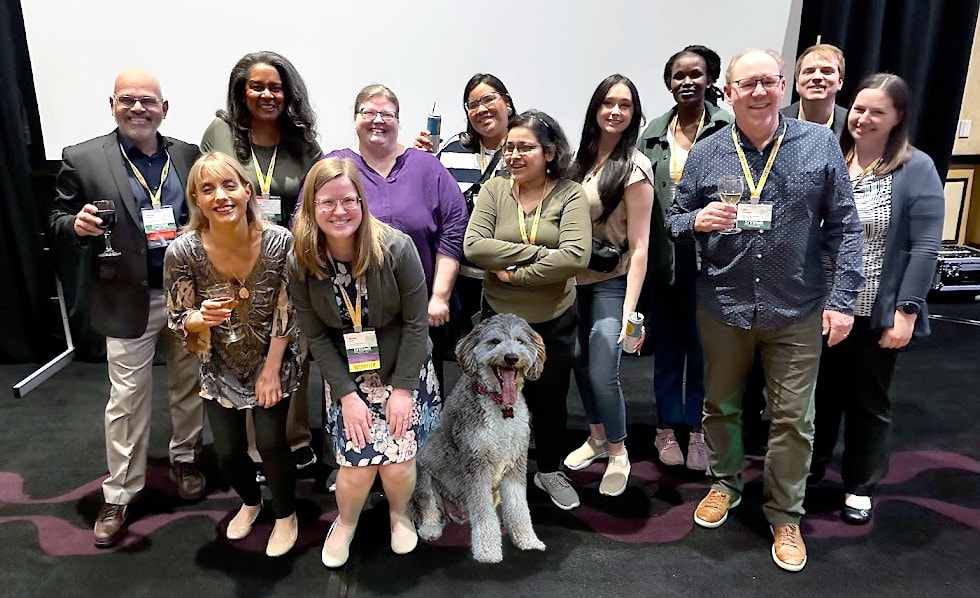
- Second, there were so many sessions at this conference devoted to generative AI that i created a couple of new versions of the SITE conference logo – to show the AI “hidden” in the design. Here they are side by side, the original and my two (tongue in cheek) versions.

With that out of the way… onto the the sessions.
1. Symposium: Mapping the True Nature of Generative AI: Applications in Educational Research & Practice [Link to Paper]
Symposium Leaders: Punya Mishra (ASU), Melissa Warr (NMSU) & Michael Henderson (Monash).
This symposium consisted of 6 papers exploring the implications of Generative AI through a range of theoretical and empirical approaches, spread across across multiple contexts (teacher preparation, doctoral research and more). Slides below the photo.
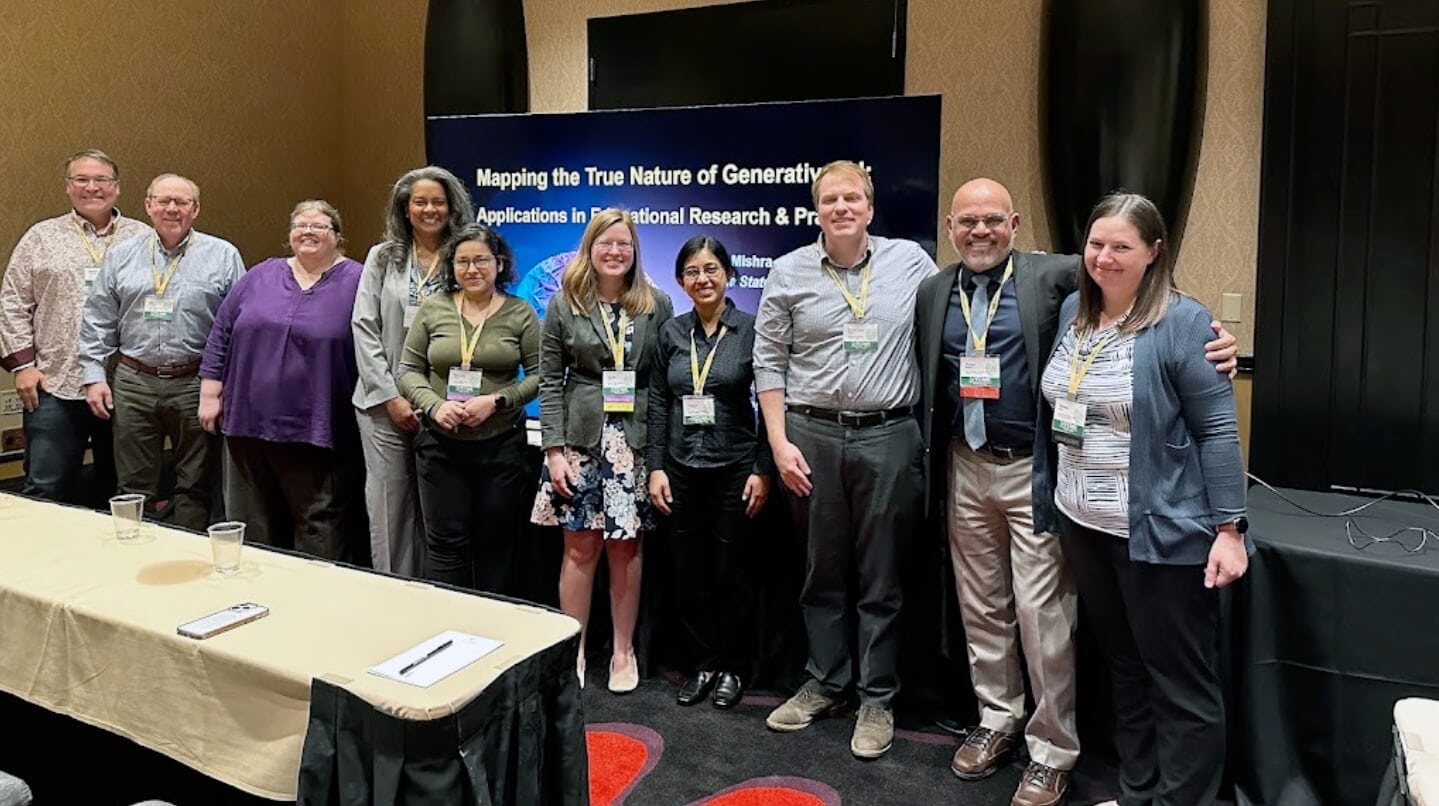
2. Panel: AI and the Art of Teaching: Enhancing or Eroding Educational Creativity? [Link to Paper]
This panel was set up as a debate, moderated by Danah Henriksen, between Michael Henderson and myself, with Ed Creely trying to split the difference, on how, when, and why Generative AI should or should not be used in teaching. This was great fun, partly because Michael and I took on starkly opposing positions on the topic at hand. In fact, my response to Michael was a video created entirely by AI (embedded below the slides). This was the most fun I have had at an educational conference in a long time.
3. Panel: Exploring New Horizons: Generative Artificial Intelligence and Teacher Education [Link to Paper]
This panel consisted of authors who contributed to the AACE’s recently-published book, Exploring New Horizons: Generative Artificial Intelligence and Teacher Education (Edited by Michael Searson, Elizabeth Langran, and Jason Trumble). Essentially it was a presentation on a recently published chapter: The (Neal) Postman always rings twice (co-authored with Marie Heath).
4. Paper: What Does Google Know? Plagiarism, ChatGPT, and Higher Education [Link to Paper]
The study (conducted by Nicole Oster, with some limited guidance by me) examined the correlation between search trends in Google Trends for “ChatGPT,” “plagiarism checker,” and “AI” and factors like university enrollment, rank, and AI policies, revealing increased interest in these areas coinciding with ChatGPT’s release. This is a fascinating study and we hope to see it in print soon.
5. Paper: Teaching, Teacher Education and Practical Wisdom in the Age of AI [Link to paper]
This presentation (with Danah Henriksen) examined the integration of “practical wisdom” within the educational sector amidst the advent of generative artificial intelligence (GenAI), emphasizing the indispensable roles of experience, reflection, and ethical decision-making in professional expertise.
6. Poster: The design of a TPACK survey for Gen AI: A preliminary study [Link to paper]
In this poster presentation Rezwana Islam and I present a survey instrument (and some pilot data) to measure teachers’ TPACK, specifically in the context of generative AI. This survey builds on a validated survey created by Schmid, Brianza & Petko (2020) as well as the theoretical ideas in Mishra, Warr & Islam (2023). The instrument also includes additional items directly focused on teachers’ knowledge of and experience with AI tools in general.
7. Symposium: The past, present, and most importantly the future of TPACK [Link to paper]
Symposium Leaders: Punya Mishra (Arizona State), Michael Phillips (Monash), Evrim Baran (Iowa State), & Matthew Koehler (Michigan State)
This symposium brought together a diverse group of scholars, all of whom are writing chapters for the 3rd Edition of the TPACK handbook. In this set of papers we delve into various facets of TPACK, from its historical evolution, its application in contemporary educational settings and what the future of TPACK research looks like.

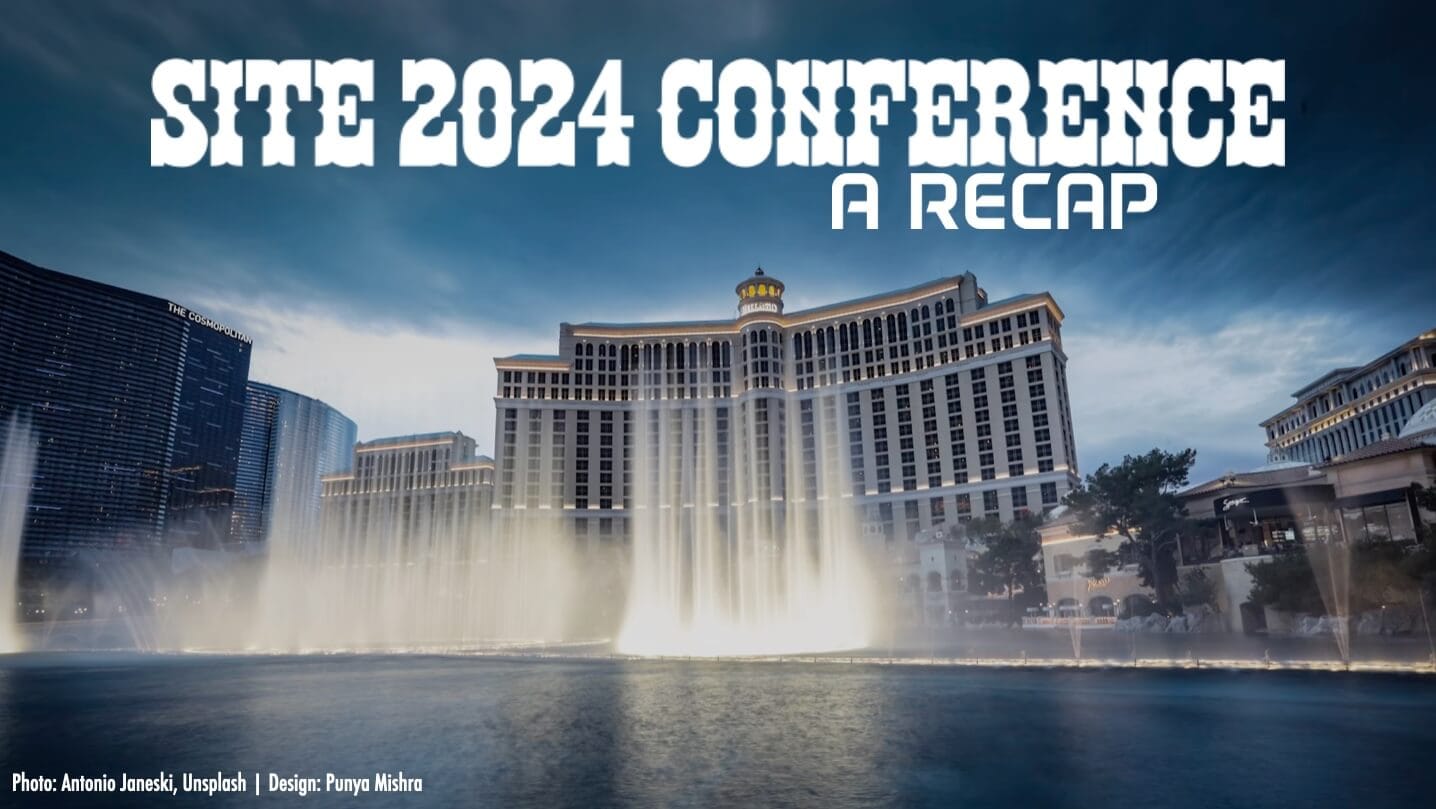
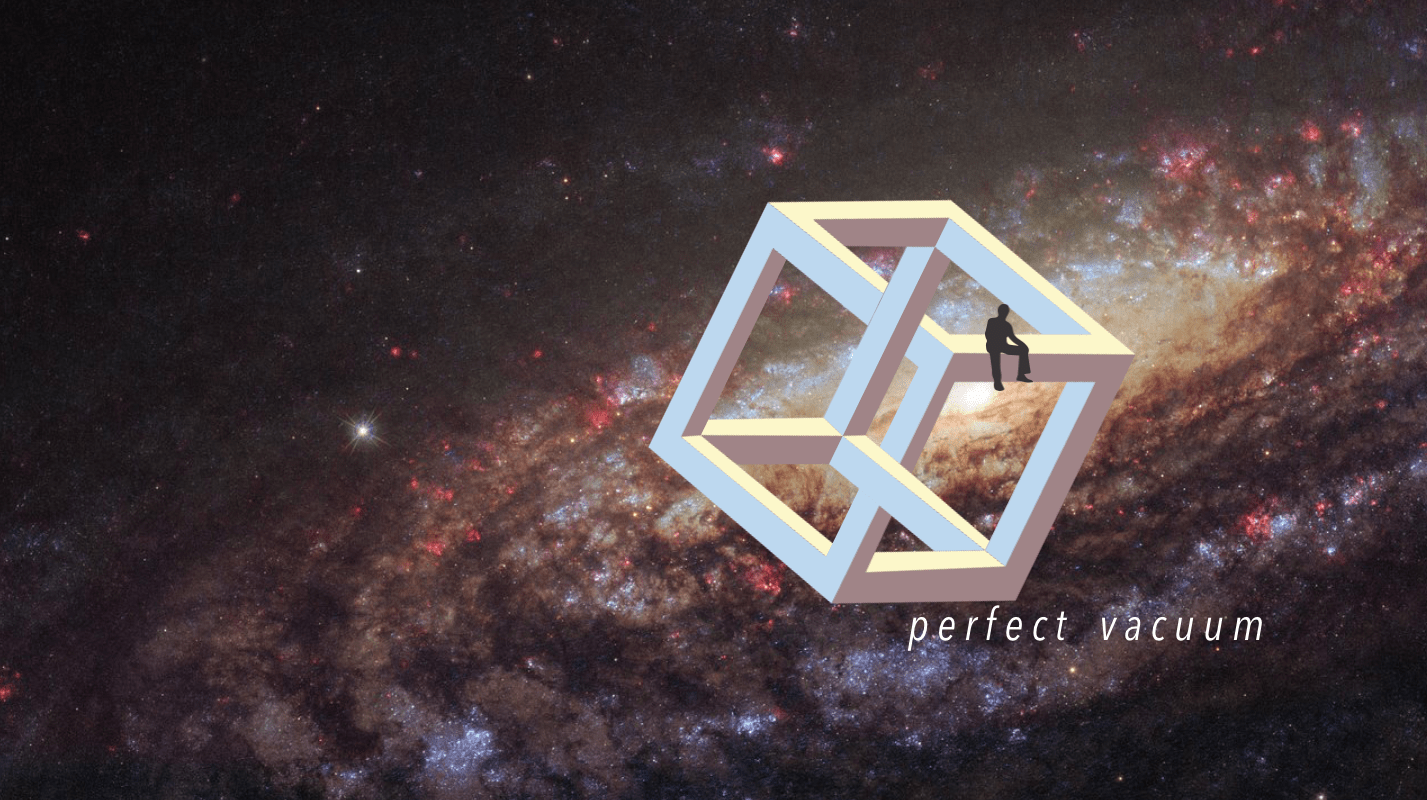
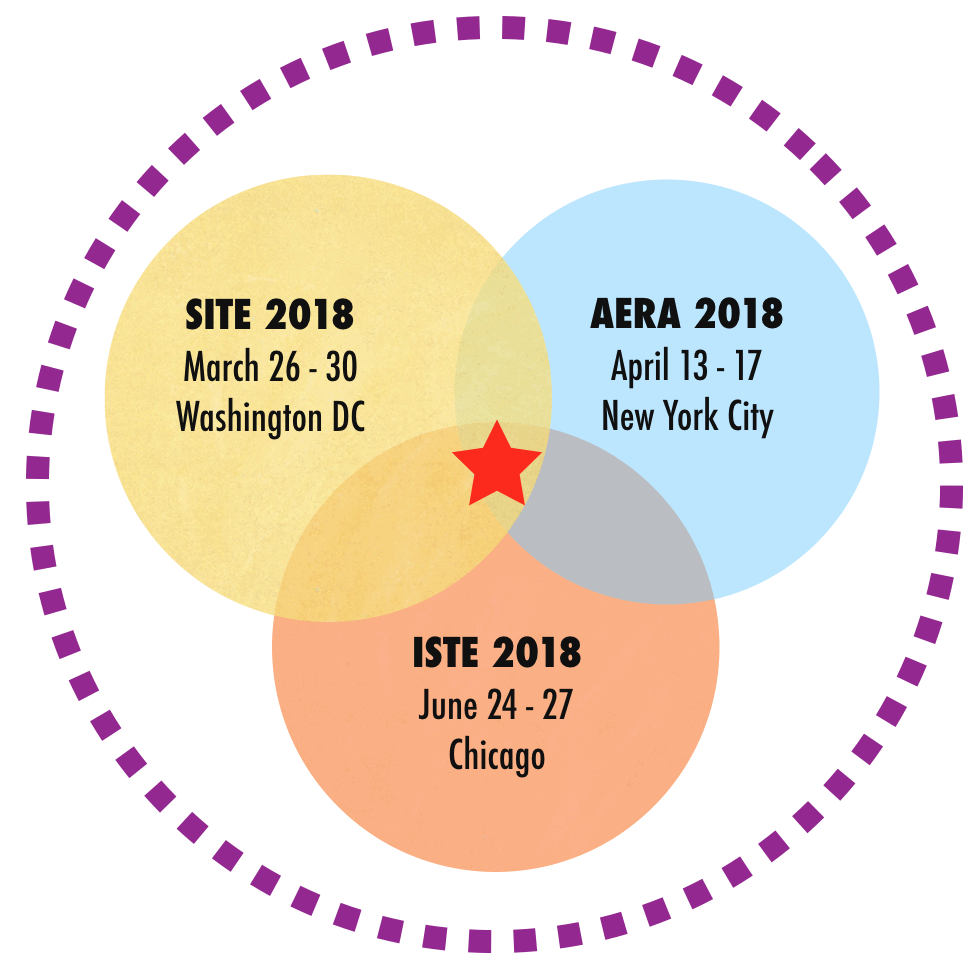
0 Comments